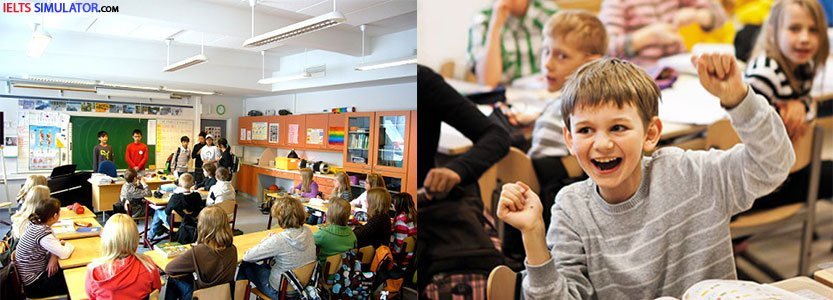IELTS READING
Why Are Finland’s Schools Successful?
The country’s achievements in education have other nations doing their homework.
A. At Kirkkojarvi Comprehensive School in Espoo, a suburb west of Helsinki, Kari Louhivuori, the school’s principal, decided to try something extreme by Finnish standards. One of his sixth-grade students, a recent immigrant, was falling behind, resisting his teacher’s best efforts. So he decided to hold the boy back a year. Standards in the country have vastly improved in reading, math, and science literacy over the past decade, in large part because its teachers are trusted to do whatever it takes to turn young lives around.
Attempt full reading test…
Q1 ‘I took Besart on that year as my private student,’ explains Louhivuori. When he was not studying science, geography, and math, Besart was seated next to Louhivuori’s desk, taking books from a tall stack, slowly reading one, then another, then devouring them by the dozens. By the end of the year, he had conquered his adopted country’s vowel-rich language and arrived at the realization that he could, in fact, learn.
B. This tale of a single rescued child hints at some of the reasons for Finland’s amazing record of education success. The transformation of its education system began some 40 years ago but teachers had little idea it had been so successful until 2000. In this year, Q2 the first results from the Programme for International Student Assessment (PISA), a standardized test given to 15-year-olds in more than 40 global venues, revealed Finnish youth to be the best at reading in the world. Three years later, they led in math. By 2006, Finland was first out of the 57 nations that participate in Q7 science. In the latest PISA scores, the nation came second in science, third in reading, and sixth in math among nearly half a million students worldwide.
C. In the United States, government officials have attempted to improve standards by introducing marketplace competition into public schools. In recent years, Q3 a group of Wall Street financiers and philanthropists such as Bill Gates have put money behind private-sector ideas, such as charter schools, which have doubled in number in the past decade. President Obama, too, apparently thought competition was the answer. One policy invited states to compete for federal dollars using tests and other methods to measure teachers, a philosophy that would not be welcome in Finland. ‘I think, in fact, teachers would tear off their shirts,’ said Timo Heikkinen, a Helsinki principal with 24 years of teaching experience. ‘If you only measure the statistics, you miss the human aspect.’
D. There are no compulsory standardized tests in Finland, apart from one exam at the end of students’ senior year in high school. There is no competition between students, schools or regions. Finland’s schools are publicly funded. The people in the government agencies running them, from national officials to local authorities, are educators rather than business people or politicians. Every school has the same national goals and draws from the same pool of university-trained educators. The result is that a Q4 Finnish child has a good chance of getting the same quality education no matter whether he or she lives in a rural village or a university town.
E. It’s almost unheard of for a child to show up hungry to school. Q5 Finland provides three years of maternity leave and subsidized day care to parents, and preschool for all five-year-olds, where the emphasis is on socializing. In addition, the state subsidizes parents, paying them around 150 euros per month for every child until he or she turns 17. Schools provide food, counseling, and taxi service if needed. Health care Is even free for students taking degree courses.
F. Finland’s schools were not always a wonder. For the first half of the twentieth century, only the privileged got a quality education. But In 1963, the Finnish Parliament made the bold decision to choose public education as the best means of driving the Q8 economy forward and out of recession. Public schools were organized into one system of comprehensive schools for ages 7 through 16. Teachers from all over the nation contributed to a national curriculum that provided Q9 guidelines, not prescriptions, for them to refer to. Besides Finnish and Swedish (the country’s second official language), children started learning a third Q10 language (English Is a favorite) usually beginning at age nine. Q6 The equal distribution of equipment was next, meaning that all teachers had their fair share of teaching Q11 resources to aid learning. As the comprehensive schools Improved, so did the upper secondary schools (grades 10 through 12). The second critical decision came In 1979, when it was required that every teacher gain a fifth-year Q12 Master’s Degree In theory and practice, paid for by the state. From then on, teachers were effectively granted equal status with doctors and lawyers. Applicants began flooding teaching programs, not because the salaries were so high but because autonomous decision-making and Q13 respect made the job desirable. And as Louhivuori explains, ‘We have our own motivation to succeed because we love the work.’
